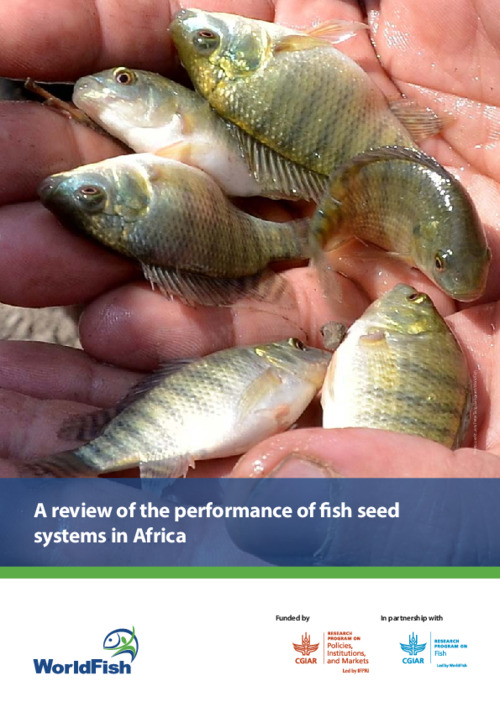A review of the performance of fish seed systems in Africa

Globally, fish is one of the most important sources of animal protein and a key source of livelihood. In Africa,
fish production has significantly increased in recent years, but the proportion of fish production relative to
other regions is extremely low. In most African countries, the aquaculture sector is poorly developed. With
a lack of access to quality seed commonly cited as a key constraint to fish production, interventions in fish
seed systems could ensure fish seed security for the majority of the farmers in Africa.
This study seeks to synthesize the available evidence on fish seed systems using a systematic literature review.
The review combines a multistakeholder framework and seed system components approach to characterize
and analyze the performance of the fish seed systems in Africa. The study highlights the major constraints
facing fish seed systems in Africa. Most governments operate public hatcheries and aquaculture stations,
but they are highly inefficient. Lack of standards and weak enforcement where standards do exist have led to
farmers accessing poor-quality seeds when seeking alternative sources of seed. Demand for improved seed
is high, but the existing formal seed system cannot supply quality seed to farmers at the right time. Farmers,
therefore, rely on the informal sector, getting seed from the wild or smallholder seed multipliers.
Permalink
Date Available
Type
Publisher
Copyright
CC-BY-NC-4.0
Research Themes
Topics
Language